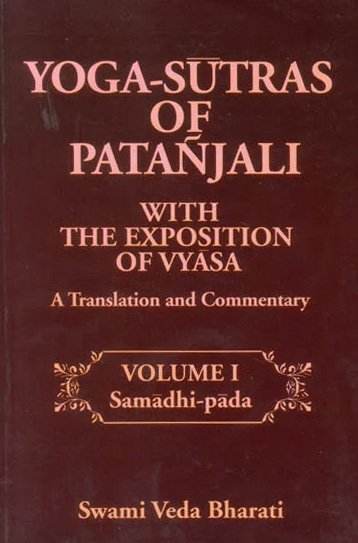Yoga-sutras (Ancient and Modern Interpretations)
by Makarand Gopal Newalkar | 2017 | 82,851 words | ISBN-13: 9780893890926
Yoga-sutras 4.7, English translation with modern and ancient interpretation. The Patanjali Yogasutras describe an ancient Indian tradition spanning over 5000 years old dealing with Yoga:—Meditating the mind on the Atma leading to the realization of self. This study interprets the Yogasutras in light of both ancient and modern commentaries (e.g., Vyasa and Osho) while supporting both Sankhya and Vedanta philosophies.
Sūtra 4.7
Sanskrit text, Unicode transliteration and English translation of sūtra 4.7:
कर्माशुक्लाकृष्णं योगिनस्त्रिविधमितरेषाम् ॥ ४.७ ॥
karmāśuklākṛṣṇaṃ yoginastrividhamitareṣām || 4.7 ||
(7) The actions of yogīs are neither white nor black, whereas the actions of others are of three kinds.
Ancient and Modern interpretation:
[Read sūtras 4.7-12—Karmasiddhānta now]
[Read sūtra 4.7 above]
Vyāsa says that karma is of four kinds—
- black,
- black and white,
- white and
- neither white nor black.
Bhāsvatī explains,[1] that if Sādhaka observes yama–niyama,then his karma is similar to Yogīs i.e. aśukla–akṛṣṇa.(Neither black nor white).
Yogī brings cessation of the fluctuations of mind and so piety and impiety of mind.So, they donot do any evil, but the good deeds they perform are without any expectation of fruit.(niṣkāma karma as per Taimni)
Araṇya says,[2] austerities and religiousstudies of yogīs are for attenuating afflications,while their renunciation is fordeveloping detachment from pleasure and pain.So, the actions of body cease to be cause of bondage.
Yogī should be pure like lotus born in mud.It has no attachment with mud around. It is very difficult for intelligent person also to decide good or bad deed.
“Yogī skarmas are neither pure nor impure, neither moral or immoral,but all others are there threefold, pure, impure and mixed.”
An enlightened man is a vast emptiness.He does not live through his mind and its frame.Mind interferes,but he is not a mind.God thinks through him.So, he will be in the hands of divine,which will act through him.He does not evaluate whatever has happened is good or bad. Enlightened man never plans,never interprets, never looks ahead. He allows the moment to decide.
Osho quotes Max Planck and says,
“Existence is such as if you are pouring peas from one cartoon to another-discontinuous—each pea falling separately.”
This each pea is called quanta.Mind is also nothing but wandering thoughts connected by space. So, the original mind of a person and divine mind is same.
Lord Kṛṣṇa says in Bhagavadgītā,[5]
“What is action? What is inaction?As to this even the ‘wise’ are deluded.Therefore, I shall teach you ‘action’ (the nature of action and inaction),knowing which,you shall be liberated from the evil(of saṃsāra the wheel of birth and death).”
Niṣkāmakarma is the gateway to get free from bondage of karma. Kāmyakarma leads to misery.So Yogī does karmas not even for goal of self-realization.So, such person is sanyāsī as per Bhagavadgītā.
The sages understood sanyāsa to be,[6] ‘the renunciation of works with desire’ the wise declare ‘the abandonment of the fruits of all actions’ as tyāga.Sign of renunciation is desireless action and he is only sanyāsī.
Footnotes and references:
[1]:
Bhāsvatī, op.cit,p. 606
[2]:
Araṇya, op.cit,p.355-56
[3]:
Osho, The Alpha and Omega, Vol. X, Published by-Tao Publishing Pvt Ltd,
[5]:
Bhagavadgītā IV-16
[6]:
Bhagavadgītā, XVIII.2 — [...] ||
